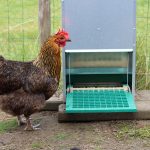How Long Do Chickens Live?
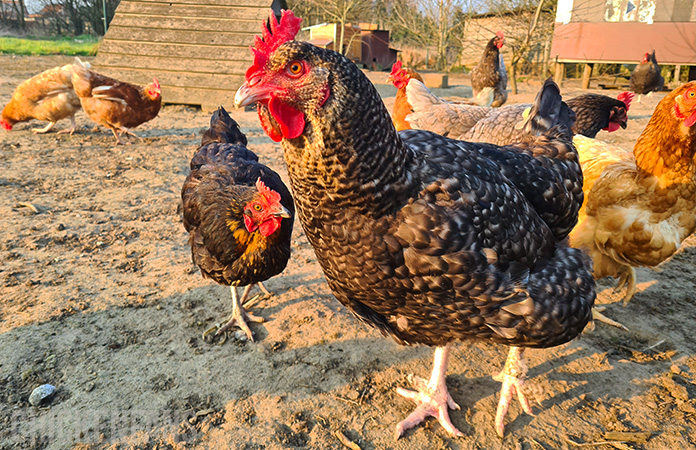
Chickens are some of the most domesticated birds in the world and provide eggs and meat to millions of people every day. Depending on several factors, like breed, diet, and living conditions, a chicken’s lifespan can vary. But how old do most chickens get? And when do most stop laying eggs?
Let’s find out!
How Long do Chickens Live?
The average chicken lifespan is between five to ten years, but it mainly depends on whether it’s a hybrid bird or a heritage breed. Hybrids live, on average, only two to four years, while heritage breeds can live up to ten years and older. The lifespan also depends on diet, living conditions, and overall health.
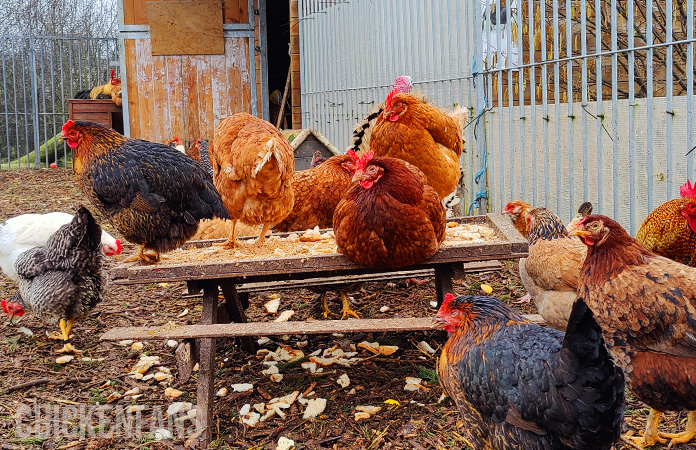
How Long do Hybrid Chickens Live?
Hybrid chickens are not real chicken breeds; they are a cross of several chicken breeds. These crosses are typically made to improve certain traits such as egg-laying capacity, meat production, or disease resistance. Most hybrid chickens are, therefore, great egg layers, beginner-friendly, and hardy birds.
Hybrid chickens are favored by commercial poultry producers because they have high productivity and efficiency. They are bred to bring many eggs in a short period of time and grow rapidly. As a result, these birds have a shorter lifespan than heritage breeds. Most hybrid chickens won’t live longer than the age of four.
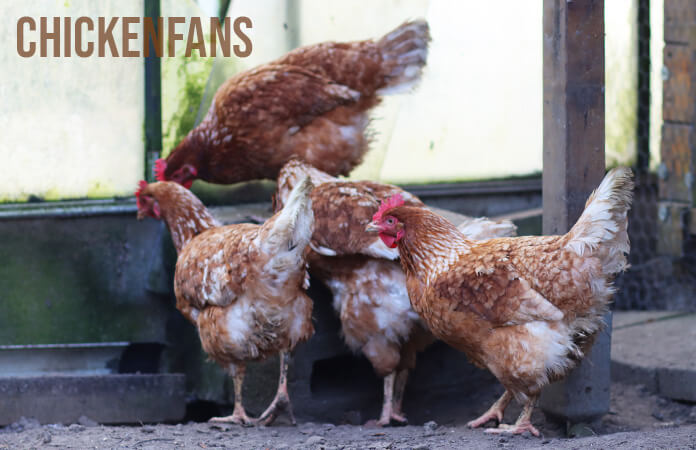
What well-known chickens are hybrid chickens? Let’s go over some favorite chickens that are hybrid chickens and, therefore, not true breeds.
- ISA Brown
- Green Queen
- Olive Egger
- Golden Comet
- Easter Egger
- Cinnamon Queen
- Mystic Onyx
- Calico Princess
- Smokey Pearl
- Sapphire Gem
- Prairie Bluebell Egger
On average, these chickens live for around 2 to 4 years, although some may live longer or shorter depending on circumstances. It is worth noting that factors such as nutrition, access to clean water, and regular veterinary care can help extend hybrid birds’ lifespans.
How Long do Heritage Breeds Live?
A heritage chicken is a purebred chicken that has been selectively bred for generations. Although many heritage breeds are very good egg layers, hybrid chickens are mostly more productive than heritage chickens.
Heritage chickens generally tend to live longer than hybrid chickens, with most living up to eight or ten years. With proper care and good health, heritage chickens can even live longer than the age of ten.
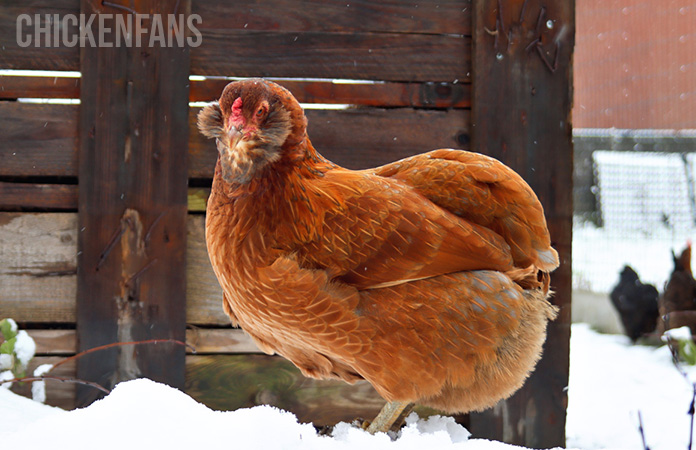
What well-known chickens are a heritage breed? Let’s address the most common chicken breeds in the US that are heritage breeds.
- Rhode Island Red
- Wyandotte
- Australorp
- Orpington
- Plymouth Rock
- Silkie
- Brown Leghorn and White Leghorn
- Polish
- Brahma
- Sussex
- Araucana
- Legbar
However, it is worth noting that the lifespan of heritage chickens can also be affected by various factors such as disease, injury, and predators.
What Age Do Chickens Stop Laying Eggs?
The exact age at which a chicken stops laying eggs mostly depends on whether it’s a hybrid or heritage breed. Most hybrids significantly reduce egg production after only two to three years, while heritage breeds keep on laying well into old age.
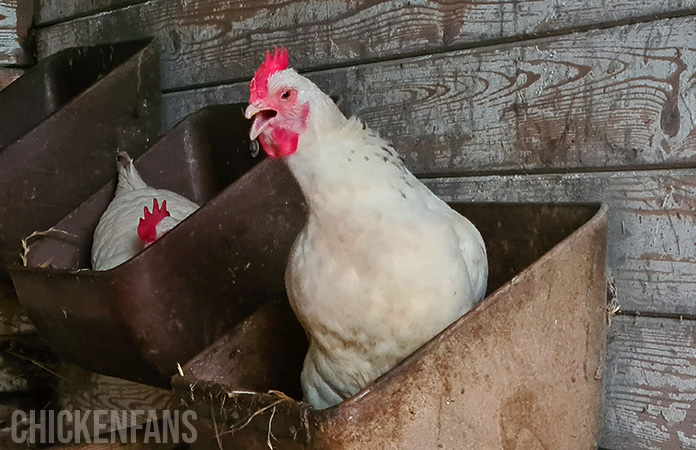
In general, most hens, hybrid, and heritage, will lay eggs consistently for about 2-3 years, with the highest levels of egg production occurring in the first year. After that, egg production declines eighter gradually or abruptly, depending on the type of chicken. Some chickens will lay up to one egg per day and, on rare occasions, even two eggs daily.
As hybrid chickens mostly won’t live longer than 2 to 4 years, they stop producing eggs much earlier dan true breeds. Egg production can be expected to reduce after the age of two.
Heritage breeds usually slow down their egg production after the first highly productive years but can continue laying until they are 6 or 7 years old. After that, it’s time for their retirement.
Retired laying hens can still be of value in a flock. These mature hens can show newer birds around and teach them about life in the coop.
How Old is the World’s Oldest Chicken?
At this moment, the world’s oldest chicken is a hen named Peanut. She lives in Michigan, USA and is confirmed by the Guiness Book of World Records as the oldest living chicken. Peanut was born in the spring of 2002, making her at least 20.
The world record for the oldest chicken is for the hen Muffy. She lived to be 23 years and 152 days! Muffy died in 2012.
Tips for Giving Your Chickens the Longest Quality Life Possible
As chicken owners, we are responsible for providing the best possible care for our chickens, including taking steps to make their lives as healthy and happy as possible. By following a few simple guidelines, you can ensure your chickens’ life is as long and comfortable as possible.
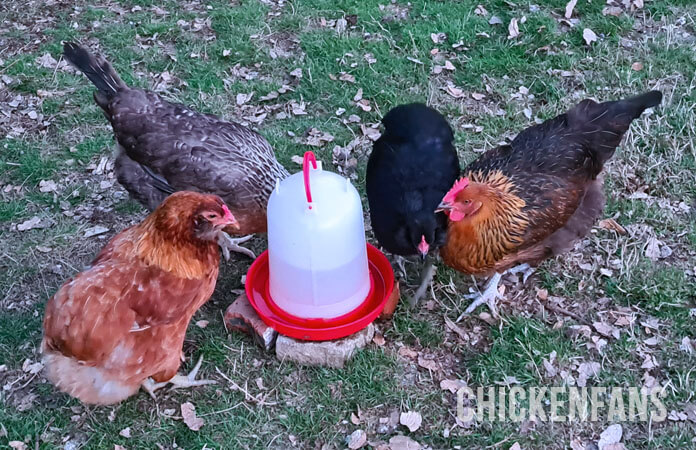
- Provide a nutritious diet: Make sure your chickens have access to high-quality feed. A balanced diet with the right mix of protein, calcium, vitamins, and minerals is essential.
- Keep their living area clean: A clean living space is important to prevent diseases. Clean the coop regularly, remove dirty bedding, and practice biosecurity.
- Provide clean, fresh water: Chickens need clean water daily.
- Protect them from predators: Use fencing, cover the run area, install an automatic coop door, and be vigilant for signs of predators in the area.
- Provide regular health checkups: Early detection of any health issues can help prevent serious problems.
- Keep their environment stress-free: Try to minimize loud noises, overcrowding, and other stressful factors in their surroundings.
- Provide free-ranging space and dust baths: Chickens are naturally active animals. Providing opportunities for them to scratch, forage, and dust bathe will help keep them happy and healthy.
Summary
The lifespan of chickens depends on several factors, including breed, diet, living conditions, and genetics. In general, chickens can live anywhere from 5 to 10 years, with some breeds known to live up to 15 years.
Hybrid chickens live less long than heritage breeds. Hybrids live, on average, only two to four years, while heritage breeds can live up to ten years and older.
If you want to learn more about chickens and health problems, check out our ‘Health‘ page.



